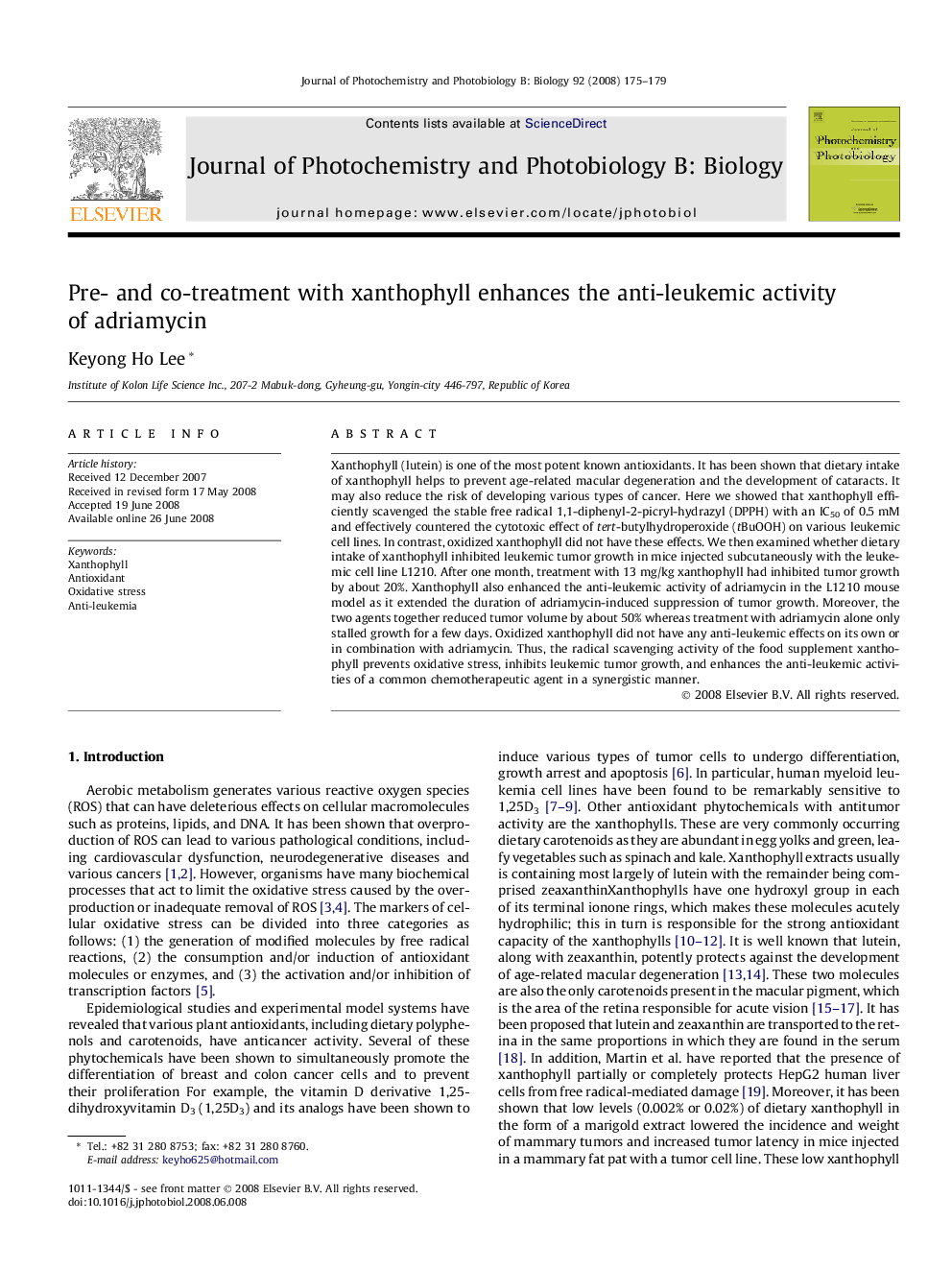| Article ID | Journal | Published Year | Pages | File Type |
|---|---|---|---|---|
| 30270 | Journal of Photochemistry and Photobiology B: Biology | 2008 | 5 Pages |
Xanthophyll (lutein) is one of the most potent known antioxidants. It has been shown that dietary intake of xanthophyll helps to prevent age-related macular degeneration and the development of cataracts. It may also reduce the risk of developing various types of cancer. Here we showed that xanthophyll efficiently scavenged the stable free radical 1,1-diphenyl-2-picryl-hydrazyl (DPPH) with an IC50 of 0.5 mM and effectively countered the cytotoxic effect of tert-butylhydroperoxide (tBuOOH) on various leukemic cell lines. In contrast, oxidized xanthophyll did not have these effects. We then examined whether dietary intake of xanthophyll inhibited leukemic tumor growth in mice injected subcutaneously with the leukemic cell line L1210. After one month, treatment with 13 mg/kg xanthophyll had inhibited tumor growth by about 20%. Xanthophyll also enhanced the anti-leukemic activity of adriamycin in the L1210 mouse model as it extended the duration of adriamycin-induced suppression of tumor growth. Moreover, the two agents together reduced tumor volume by about 50% whereas treatment with adriamycin alone only stalled growth for a few days. Oxidized xanthophyll did not have any anti-leukemic effects on its own or in combination with adriamycin. Thus, the radical scavenging activity of the food supplement xanthophyll prevents oxidative stress, inhibits leukemic tumor growth, and enhances the anti-leukemic activities of a common chemotherapeutic agent in a synergistic manner.
